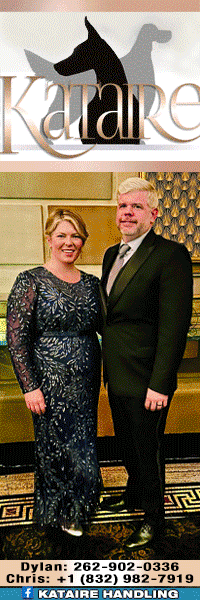No Doggie Gate at this Bar
We had some big developments in New York recently, and I don’t mean the election. Okay, we had that, too. However, for dog people the headliner went down in Park Slope, Brooklyn when canine patrons were abruptly evicted from a popular local hangout. Perhaps they were lured by the specialty craft brews. More likely, it was the sociable atmosphere because The Gate’s collective vibe of great beer and neighborhood camaraderie has long earned rave reviews from both species. That’s until someone ratted. Responding to an anonymous tip, health department inspectors busted the joint on October 21st.
From a legal standpoint, dogs never should have been there in the first place. According to section §81.25 of the city’s Health Code, “No live animal shall be kept, housed or permitted to enter into or remain in any food service establishment or non-retail food processing establishment.”
But as we know, dogs seem to infiltrate almost every human stronghold. This sociological pattern long predates dog bans, which have figured into civic agendas ever since the birth of bureaucracy. Over the centuries, renegade canines have been (unsuccessfully) banished from churches, courthouses, royal palaces and countless other places with more official clout than a neighborhood bar. From the moment some killjoy posted the first “No Dogs Allowed” sign, defiant dog lovers began choosing the outlaw path and staunchly resisting every legal mandate, social convention, and health warning to the contrary.
In 1934, Edward Ash remarked on this enduring scofflaw behavior in This Doggie Business. His unique blend of purebred history and social satire portrayed “a strange doggie England” back in the 17th century, which he characterized as “a nation overrun with dog enthusiasts, dog lovers, and their pampered dogs.” To highlight the scope of the problem, he noted “Churches were home to dogs six days out of seven.” And that was about 700 years after England began implementing dog bans.
In reality, resident dogs and cats have always been a staple feature of pubs, bars, and grog shops simply because they are good for business. In many cases, ongoing fines are simply factored into normal operating expenses. Every community has them. Like most illegal ventures, they fly under the radar. Dogs began filtering into The Gate soon after it opened in 1997.
None of this is news. The interesting part is that this particular bar has decided to fight the health department citation. They threw down the gauntlet as part of the NO DOGS sign that was reluctantly posted to their door the following day. Calling the current regulation unfair, the owners questioned why it should apply equally to establishments that serve liquor but not food, suggested that it’s time for the Health Department to grant exemptions, and sarcastically emphasized this point with a closing shot: “The Gate: Not endangering human health since 1997.” Ironically, the Health Department has not revised or revoked The Gate’s A rating since the big bust.
The most remarkable aspect of this story has been the depth of grassroots support that’s emerged in the wake of this minor incident. Enraged Brooklyn dog lovers subsequently launched an online petition demanding revisions to the city health code, which has garnered national media attention. Although that’s encouraging, it’s unlikely to trigger any legislative overhaul. We will have to wait for more progressive social policies to acknowledge the well-documented mental and physical benefits that are derived from contact with dogs.
The showdown between the Gate’s owners and the Health Department is scheduled for November 18th.
Short URL: http://caninechronicle.com/?p=64982
Comments are closed












